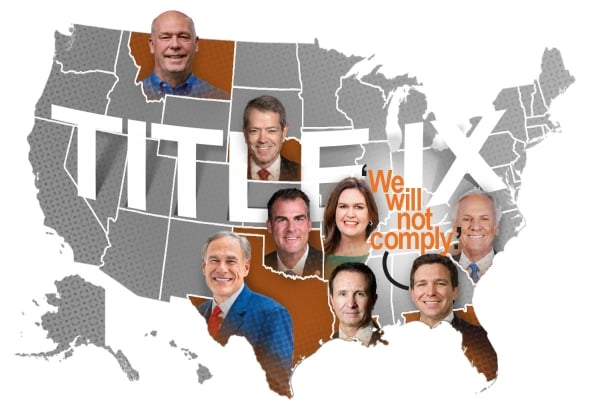Title IX, a federal law that prohibits sex discrimination in education, has become the subject of a heated political standoff in many red states. Conservative lawmakers in these states are pushing for changes to Title IX that would require colleges and universities to define gender as biological sex assigned at birth, effectively erasing transgender individuals from its protections. This move has put red state colleges in a no-win situation, caught between the demands of their political leaders and the need to protect the rights of all students on their campuses.
The controversy over Title IX and gender identity has been brewing for years, but it reached a fever pitch in recent months as more and more states have introduced bills aimed at restricting transgender individuals from accessing gender-affirming healthcare and participating in sports teams that align with their gender identity. These bills, often dubbed as “bathroom bills” or “transgender sports bans,” have sparked a fierce debate between conservative lawmakers who argue that they are necessary to protect the integrity of women’s sports and ensure the privacy and safety of all students, and LGBTQ advocates who see them as discriminatory and harmful to transgender individuals.
In this charged political climate, red state colleges are being forced to navigate a complex and contentious issue with no easy solution in sight. On one hand, they must comply with the laws and regulations set forth by their state governments, which may require them to adopt policies that discriminate against transgender students. On the other hand, they have a duty to create a safe and inclusive environment for all students, regardless of their gender identity.
For college administrators, faculty, and staff, it is a delicate balancing act. They must weigh the potential backlash from their state governments and conservative donors against the ethical and moral imperative to protect the rights and well-being of all students on their campus. Additionally, many colleges and universities are concerned about the impact that complying with these restrictive laws may have on their reputation and ability to attract and retain diverse student populations.
In this difficult position, red state colleges are increasingly turning to their legal counsel for guidance. Some are considering legal challenges to the discriminatory laws in an effort to protect their students and uphold their commitment to diversity and inclusion. Others are exploring ways to provide support and resources to transgender students in the face of hostile legislation.
Ultimately, the political standoff over Title IX in red states puts colleges and universities in an untenable position. They are being forced to choose between appeasing their state governments and respecting the rights of all students on their campuses. It is a lose-lose situation that highlights the challenges and complexities of navigating the intersection of politics and higher education in an increasingly divided and polarized society.



